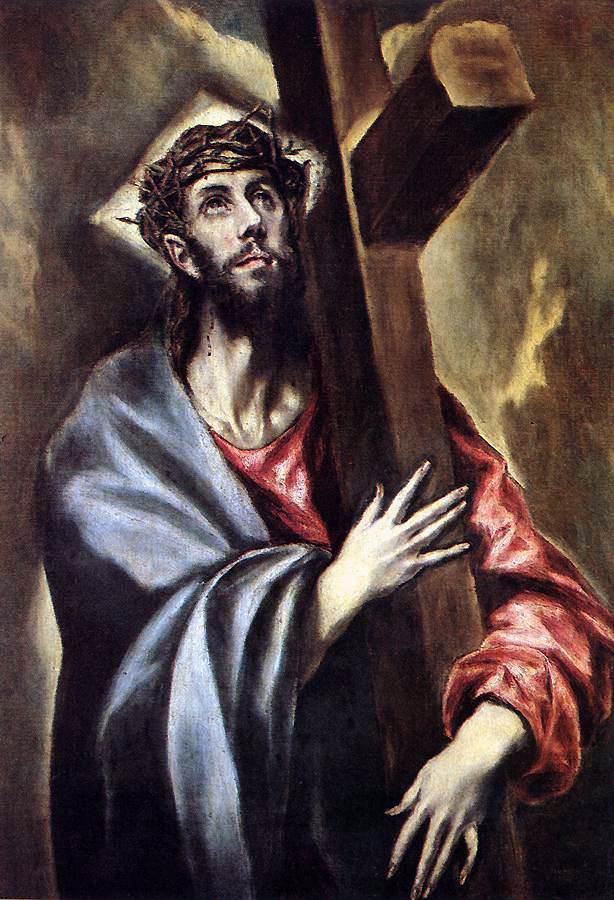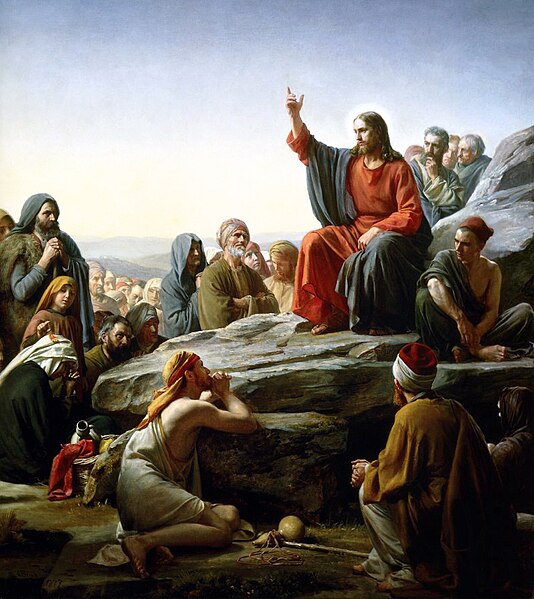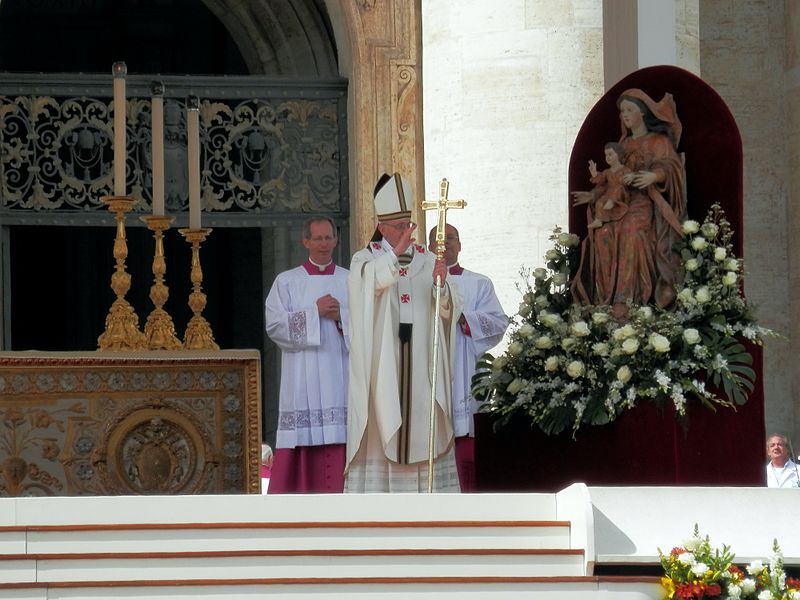Clement Shahbaz Bhatti شہباز بھٹی
(9 September 1968 – 2 March 2011)
'I do not want popularity, I do not want positions of power. I only want a place at the feet of Jesus. I want my life, my character, my actions to speak of me and say that I am following Jesus Christ.'
Readings
(Jerusalem Bible: Australia, England & Wales, India
[optional], Ireland, New Zealand, Pakistan, Scotland, South Africa)
Jesus said to his disciples:
“No one can serve two masters; for a slave will either hate the one and love the other, or be devoted to the one and despise the other. You cannot serve God and wealth.
“Therefore I tell you, do not worry about your life, what you will eat or what you will drink,or about your body, what you will wear. Is not life more than food, and the body more than clothing? Look at the birds of the air; they neither sow nor reap nor gather into barns, and yet your heavenly Father feeds them. Are you not of more value than they? And can any of you by worrying add a single hour to your span of life? And why do you worry about clothing? Consider the lilies of the field, how they grow; they neither toil nor spin, yet I tell you, even Solomon in all his glory was not clothed like one of these. But if God so clothes the grass of the field, which is alive today and tomorrow is thrown into the oven, will he not much more clothe you—you of little faith? Therefore do not worry, saying, ‘What will we eat?’ or ‘What will we drink?’ or ‘What will we wear?’ For it is the Gentiles who strive for all these things; and indeed your heavenly Father knows that you need all these things. But strive first for the kingdom of God and his righteousness, and all these things will be given to you as well.
“So do not worry about tomorrow, for tomorrow will bring worries of its own. Today’s trouble is enough for today.
This Sunday, 2 March, is the third anniversary of the death of Shahbaz Bhatti, seen with Pope Benedict in the video above during an audience in September 2010. He was assassinated in Islamabad, Pakistan, shortly after leaving his mother's home. Mr Bhatti, a Catholic, was the first Christian to be appointed to the Cabinet in Pakistan and was responsible for minorities. The Pakistan Taliban claimed responsibility for his death.
Sandro Magister, one of the leading journalists covering the Vatican, wrote about the death of Shahbaz Bhatti on 14 April 2011 in A Lesson of Holiness from Remote Pakistan. Magister writes:
Sandro Magister, one of the leading journalists covering the Vatican, wrote about the death of Shahbaz Bhatti on 14 April 2011 in A Lesson of Holiness from Remote Pakistan. Magister writes:
The Bible that Shahbaz always had with him is now in Rome in the memorial for the martyrs of the past century, in the basilica of Saint Bartholomew on the Isola Tiberina.
One of the most informative and concerned articles on what his murder has meant in Pakistan and in the whole world is without a doubt the one published in La Civiltà Cattolica dated April 2, 2011.
An article that is all the more significant given that this magazine of the Rome Jesuits is printed after inspection and authorization by the Vatican secretariat of state. So it reflects the thinking of the Holy See in this regard.
In Pakistan, out of a population of 185 million inhabitants, Christians are 2 percent, one million of them Catholic. But among the Muslims as well there are minorities in danger: Shiites, Sufis, Ismaili, Ahmadis.
Christ Carrying the Cross El Greco, 1600-05 [Web Gallery of Art]
The article in La Civiltà Cattolica was written by Fr Luciano Larivera SJ and includes most of The spiritual testament of Shahbaz Bhatti. I have highlighted parts of this.
'My name is Shahbaz Bhatti. I was born into a Catholic family. My father, a retired teacher, and my mother, a housewife, raised me according to Christian values and the teachings of the Bible, which influenced my childhood. Since I was a child, I was accustomed to going to church and finding profound inspiration in the teachings, the sacrifice, and the crucifixion of Jesus. It was his love that led me to offer my service to the Church.
'The frightening conditions into which the Christians of Pakistan had fallen disturbed me. I remember one Good Friday when I was just thirteen years old: I heard a homily on the sacrifice of Jesus for our redemption and for the salvation of the world. And I thought of responding to his love by giving love to my brothers and sisters, placing myself at the service of Christians, especially of the poor, the needy, and the persecuted who live in this Islamic country.
'I have been asked to put an end to my battle, but I have always refused, even at the risk of my own life. My response has always been the same. I do not want popularity, I do not want positions of power. I only want a place at the feet of Jesus. I want my life, my character, my actions to speak of me and say that I am following Jesus Christ.
'This desire is so strong in me that I consider myself privileged whenever - in my combative effort to help the needy, the poor, the persecuted Christians of Pakistan - Jesus should wish to accept the sacrifice of my life. I want to live for Christ and it is for Him that I want to die. I do not feel any fear in this country. Many times the extremists have wanted to kill me, imprison me; they have threatened me, persecuted me, and terrorized my family.
'I say that, as long as I am alive, until the last breath, I will continue to serve Jesus and this poor, suffering humanity, the Christians, the needy, the poor. I believe that the Christians of the world who have reached out to the Muslims hit by the tragedy of the earthquake of 2005 have built bridges of solidarity, of love, of comprehension, and of tolerance between the two religions. If these efforts continue, I am convinced that we will succeed in winning the hearts and minds of the extremists. This will produce a change for the better: the people will not hate, will not kill in the name of religion, but will love each other, will bring harmony, will cultivate peace and comprehension in this region.
'I believe that the needy, the poor, the orphans, whatever their religion, must be considered above all as human beings. I think that these persons are part of my body in Christ, that they are the persecuted and needy part of the body of Christ. If we bring this mission to its conclusion, then we will have won a place at the feet of Jesus, and I will be able to look at him without feeling shame.'
Johannes Vermeer, 1654-55 (?) [Web Gallery of Art]
Can anyone fail to be moved by the testament of Shahbaz Bhatti who saw his vocation as a Christian to serve his people as a politician but whose only desire was to have a place at the feet of Jesus? Part of his serving his people was to choose not to marry. This is a member of a small, often despised minority, living out his Christian vocation as a politician and who can say I want to live for Christ and it is for Him that I want to die.
The British band Ooberfuse whose lead singer, Cherrie Anderson, is the daughter of a Filipina mother, wrote the song above for the first death anniversary of the death of Shahbaz Bhatti and sang it at a prayer rally organised by Christian Pakistanis in Britain and held in Trafalgar Square, London. They incorporated part of the last televised interview in English that Shahbaz Bhatti gave in which he said I know what is the meaning of [the] Cross.
The song above was written by Eric Sindhu who knew Shahbaz Bhatti. Fr Finbar Maxwell, a Columban who served in Pakistan for many years and is now here in the Philippines told me that the song is in Urdu and is in the traditional 'dirge' form of singing. The lyrics refer to Christian faith of Shahbaz, to his blood spilled, and to the 'book' of his life. Father Finbar echoed my own comment when he wrote: The tone, sentiment and beauty of the song indeed transcend the need for translation.
Fr Tomás King and Gerard Bhatti
Fr Tomás King, an Irish Columban priest in Pakistan, met Gerard Bhatti, a brother of Shahbaz and wrote Shahbaz Bhatti: 'I know what is the meaning of Cross'.
After the death of Shahbaz the Pakistani government offered his position in the Cabinet to the family who decided that Paul, another brother, should take it. He is a medical doctor who worked for some years in Italy. He too has been receiving death threats.
No one can serve two masters, Jesus tells us in this Sunday's gospel. Shahbaz Bhatti described his Master in detail: I believe that the needy, the poor, the orphans, whatever their religion, must be considered above all as human beings. I think that these persons are part of my body in Christ, that they are the persecuted and needy part of the body of Christ.
In his Mass in the chapel of Domus Sanctae Marthae on Monday 16 September Pope Francis asked us to Pray for politicians that they govern us well. One politician I don't pray for but pray to, every day, is this Pakistani martyr for the justice that our Catholic Christian faith demands is Clement Shahbaz Bhatti. I truly believe that he has won a place at the feet of Jesus.













